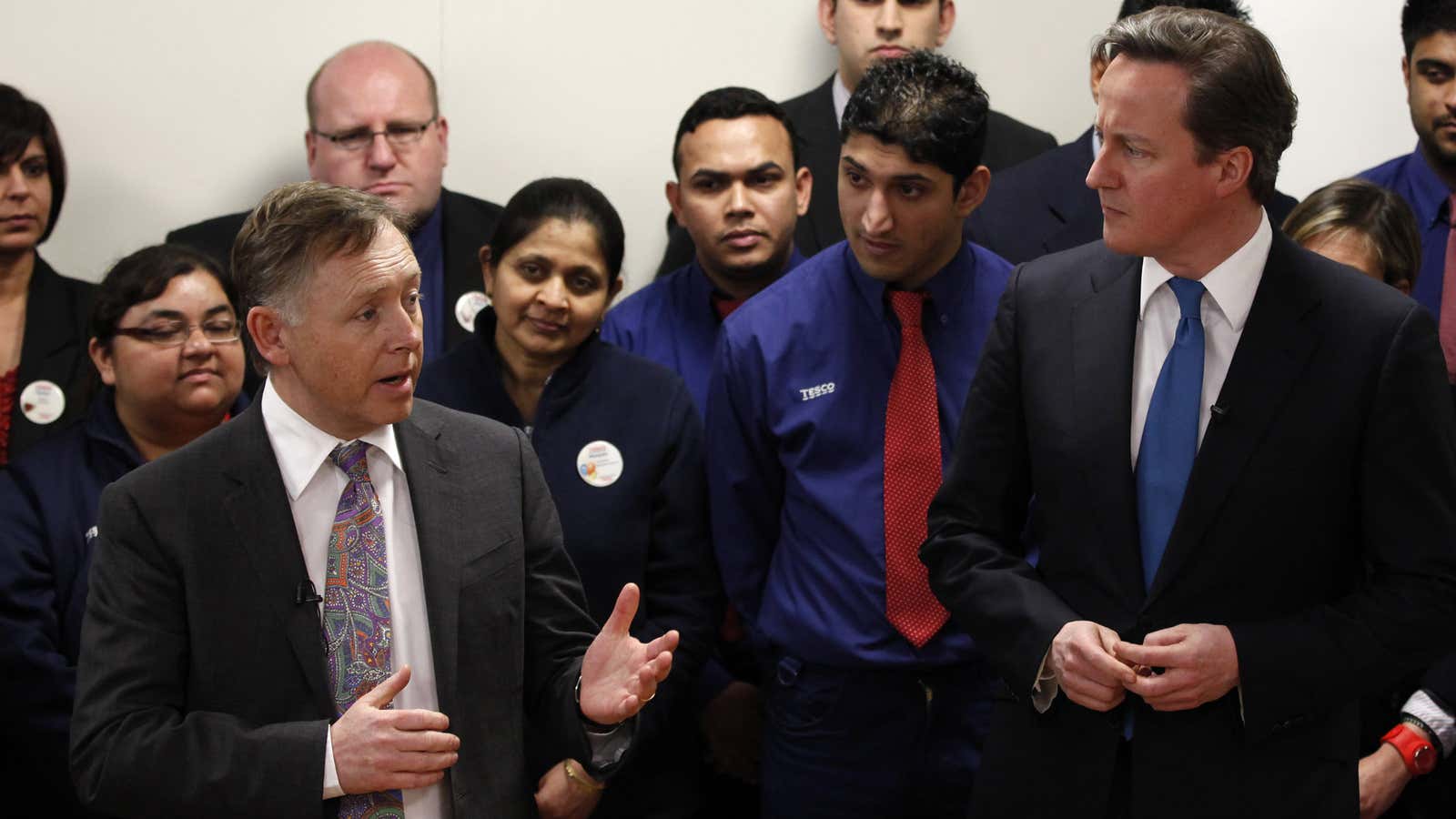In a few days, Richard Brasher officially starts as the new CEO of South Africa’s Pick n Pay. He’s the former UK head and a past board member of British multinational Tesco, the second most profitable retailer in the world after Wal-Mart. He also happens to be the man tapped to reverse the slide in market share of South Africa’s largest food retailer.
The appointment came in October 2012 with jubilation from Pick n Pay’s owners saying that they were lucky to land an executive with such extensive experience. “Tesco UK is a £47-billion business generating a trading profit of £2.5-billion, is the largest private employer in the UK and runs over 2,800 stores.”
Pick n Pay, on the other hand, has been reporting a decline in profits since 2009. Once South Africa’s largest supermarket chain by market share, now it is second. And the gap is only widening between the retailer and its rival Shoprite, which has taken over the top spot. While Pick n Pay reported a 34% fall in first-half profit at the end of last year, Shoprite, which released half year sales on Jan. 14, was “showing a growth of 13.8% to R46.7 billion during the six months to the end of December.” Shoprite has always targeted a lower income bracket while Pick n Pay has been the supermarket of the middle class and high earners.
Shoprite’s expansion into the continent has been aggressive with 243 corporate and franchise stores in 17 countries outside South Africa, while Pick n Pay’s presence is limited to Southern African stores in Namibia, Botswana, Swaziland and a stake in Zimbabwe.
Enter Brasher. He’s the first outsider to run the company. Pick n Pay’s major shareholders are the Ackerman family, and its patriarch Raymond Ackerman started the company in 1967.
Brasher, who starts on Feb. 1, has been non-commital on what he will do for Pick n Pay, saying he will employ a “listen and learn” startegy at the beginning. After an interview with the Mail and Guardian, the newspaper pronounced him a leader who “seems more methodical and considered than rash and brash.”
There are high hopes that Brasher, who served as UK head of Tesco and left after clashing with the group CEO, will help the South African retailer compete globally. A Business Day columnist notes that while Pick n Pay did not keep up with more demanding customers and the technologies to serve them:
…Another problem for Pick n Pay is US giant Walmart’s entry into South Africa. Pick n Pay in its current form is not ready for Walmart and the world’s largest retailer could rapidly erode Pick n Pay’s market share. …There is work to be done on existing stores, on service and on the inconsistent pricing and supply of stock. Change involves a shift in mind-set—from the cashier to the chairman. Culturally, Pick n Pay needs a huge change.
It is imperative Brasher’s vision, whatever it may be, trickles down to the shop floor and Pick n Pay’s lackluster staff. Analysts predict it might take a while for even an executive of his stature can turn this ship around. Meanwhile, the retailer’s rivals charge ahead.
